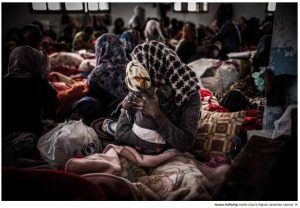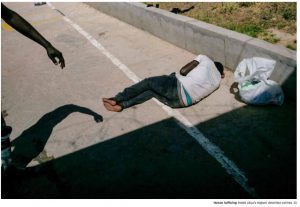The High Cost of Stigma and Profit Motives
As I read the “Hot Spots” article (Fassin), my first thoughts jumped to the idea that the European countries in question, and more broadly the European Union, have incorporated a negative and stigmatized mentality into their profit-driven approach to assist with the “refugee crisis”. Throughout the article, Fassin (intentionally) utilized negative language to perpetuate the mindset that the refugees are an unwanted problem. Fassin wrote that the EU has been trying to “deal with the refugee question” and that “generosity has never been the main reason for granting asylum”. The EU wants a profit, and that profit comes from underpaying undocumented workers, basically a modern form of indentured servitude. Where are the EU’s so called ethical and moral codes, and as Fassin pointed out towards the end of his article, who gave them the right to decide when and how international human rights laws should be followed? Dr. Alexander’s article, “The Interview That Can Change Asylum Seeker’s Lives”, about Alphonse’s journey from the DRC to Europe and back reinforced my thoughts from the previous article. It’s infuriating to know that a predominantly white society continues to control the treatment of other humans and that this form of closet racism exists on every level of society. If Alphonse had not been a black man, or simply had not been living with other black, African men, perhaps his story would be different today. 
Alphonse’s description of the refugee camp in Gabon initiated my interest in the overall medical conditions of these types of camps. In a previous article we read for class (“The Crossing”) we learned that the Moroccan migrant crisis had been named “one of the most critical global humanitarian crises” by a third party representative, Doctors Without Borders (DWB). I did some more research on the DWB’s work in northern Africa and came across this photo essay, which visualizes the horrific medical conditions of a camp in Libya (link below). It was shocking to see and read about the conditions of these detention centers – even for traditionally “vulnerable” populations such as children, women, and especially pregnant women. But here, women were raped, giving birth without medical assistance, and there were no guidelines

to prevent torture. It’s hard to
fathom the idea that powerful countries such as the EU are blindly turning away from this kind of suffering and paying other countries to continue this kind of treatment of other humans. It’s hard to accept that a country like the United States is not doing anything to help the individuals in these countries either.
https://www.doctorswithoutborders.org/sites/usa/files/attachments/msf-book-libya_refugees-v14.pdf
*Pictures borrowed from the photo essay by Guillaume Binet
Recent Comments